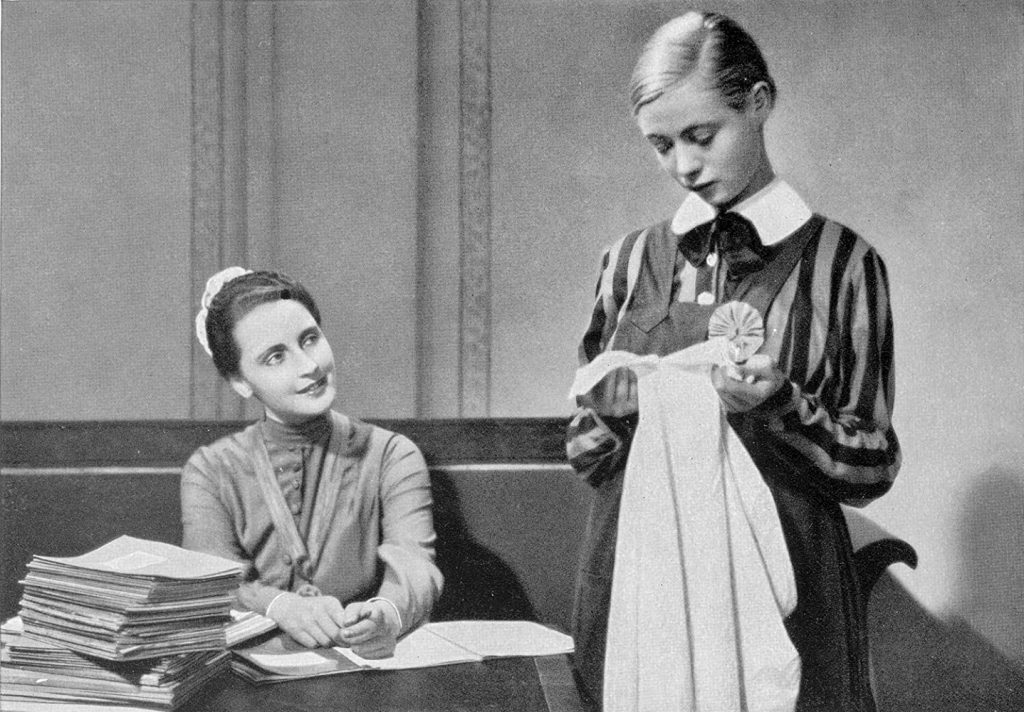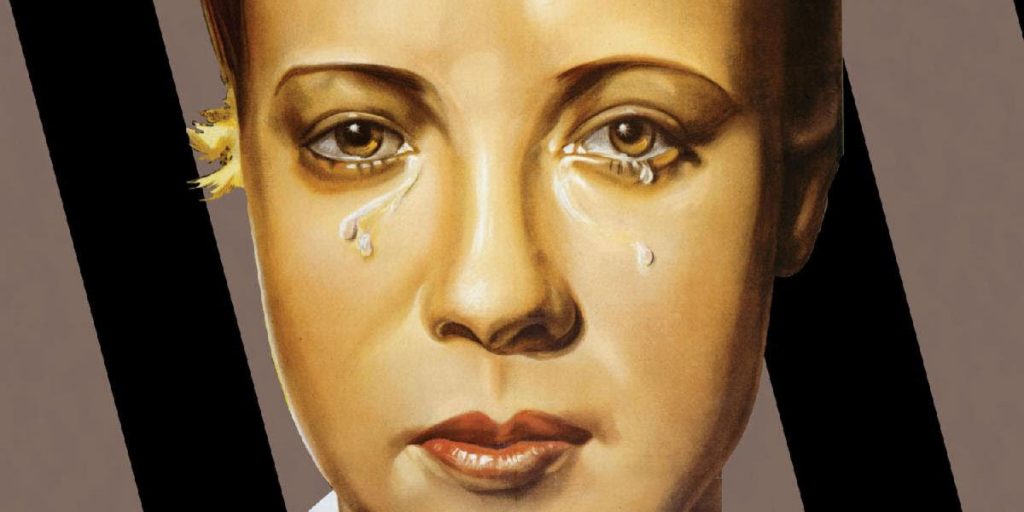Leontine Sagan’s 1931 queer masterpiece Mädchen in Uniform sparkles in a new restoration, coming to virtual cinemas this Friday.
It feels unfair, in a way: Mädchen in Uniform, an early masterpiece of queer filmmaking — written by a lesbian woman, with a female director and cast — is now most recognisable to us through its imitators, largely written and directed by men for straight audiences. While it is true that it has hardly faded into obscurity, its raw cinematic power would hardly allow for such a possibility, there’s a distinct sense that its legacy has not been put to the best use.
It is impossible to not see echoes of its boarding school setting, especially its strict and repressive schoolmarm, in 1954’s The Belles of St. Trinians: A film which of course casts the character with a male actor — a legacy of transphobic casting that still lives on in the reported casting of Ralph Fiennes in Netflix’s upcoming Matilda remake. Or, in a still more Foucauldian fashion, its depiction of sapphic desire in the subgenre of woman in prison films that erupted in popularity during the 70s and 80s: a wonderful type of low budget exploitation flick most well know for their willingness to set almost any scene they could get away with in the showers, their inventive titles including: Caged Fury, Caged Women and Caged Heat.
That last one, Jonathan Demme’s first feature film, seems to be most upfront about its inspiration. The most entertaining episode of its runtime depicting the prisoners putting on a play for each other, seemingly having been lifted narratively and aesthetically from Mädchen in Uniform. It makes sense, while the film (and the play it was based on) were not explicitly written as anti-fascist works, they were nonetheless banned when the Nazi party came to power for their ‘decadence’ and both writer and director were forced to leave their country for their safety.
Indeed, one might get a sense of Riefenstahl from the imposed order and geometric lines with which it paints the notoriously cruel and unforgiving Prussian education system. Yet here they are not aspects to be exalted. The film’s joy lines in the eagerness of its cast to break them, the frame regularly erupting in frantic bursts of chaos as the schoolchildren capitalise on the moments of freedom they have available to them. Ellen Schwanneke stands out as the school’s resident troublemaker: 25 at the time of the film’s release, her ability to capture the capriciousness of teenage rebellion a forebear to Florence Pugh in Greta Gerwig’s recent adaptation of Little Women.

Of course, it would not be a queer film without its leads. Hertha Thiele plays Manuela, a girl arriving to the school following the death of her mother, who finds a surrogate mother (and possibly more) in her governess Fräulein von Bernburg, played by Dorothea Wieck. It is to the actors credit that although they share but a handful of scenes alone together, and indeed only have one relatively chaste kiss, it feels the whole film is ran through with their longing. It is quite frank about the illicitness, and even impossibility, of their love and invites us to question the nature of their relationship.
Is this a simple schoolgirl crush, or something more? What responsibility does the teacher have to her student? Her compassion shields them from the worst that the school is determined to inflict, but is her indulgence inappropriate? Director Leontine Sagan chooses to keep the camera a distance from Weick, the better to portray her indecision, but draws us in close to Thiele; framing her head on in close up, this wonderful new remaster allowing us to see the tears in her eyes as she desperately reaches for something she may never be able to have.
Indeed, it was not always so. While homosexuality was officially criminalised, unofficially queer subcultures were allowed to thrive in the Germany of the 1920s. The Berlin Institut für Sexualwissenschaft (Institute of Sex Research) pioneered research on LGBT issues, much of which was destroyed when the Nazis came to power. Likewise, they shut down lesbian magazine Die Freundin (The Girlfriend) which served until 1933 as a periodical for the queer community.
Within this context, it is possible to read the film as an expression of the profound loss felt by a community that surely saw the warning signs of its oncoming persecution. A reading possibly compounded by the casting, despite playing teacher and student the actors are only separated by a five month age gap. Watching it, one one can’t help but feel invited to question the legitimacy of the regime that keeps these women apart. Not only as lovers, but as a form of surrogate family.
More than anything, though, Mädchen in Uniform is purely a joy to watch. Beautifully shot, with the influence of the German expressionism movement running through its veins and yet performed with a naturalism that feels out of place for cinema of the 30s. It is unfair that most of our readers will have seen Matilda, or Orange is the New Black, or even Desiree Akhavan’s recent wonderful queer indie film The Miseducation of Cameron Post, and not have seen the movie to which they all owe the greatest debt.
At least soon you’ll have a fantastic chance to correct that.
Gorgeous new restorations of three classics of early queer cinema – Mädchen in Uniform, Michael and Victor and Victoria – will open in virtual cinemas across the U.S. on June 12th.

